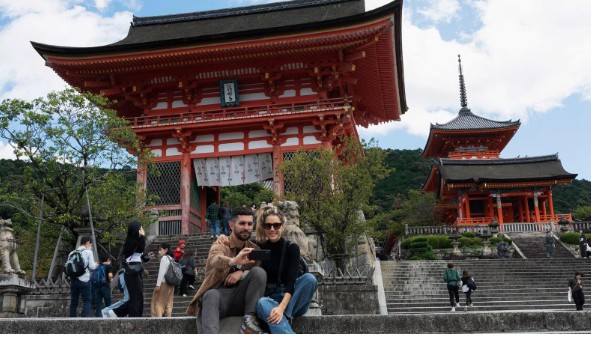For millions of travelers, Narita International Airport is the first introduction to Japan. Located in Chiba Prefecture, just outside of Tokyo, Narita has long been one of Asia’s busiest gateways, connecting Japan with the rest of the world. But beyond being a hub of international transit, Narita Airport has steadily transformed into something more meaningful: a cultural and wellness gateway that allows travelers to experience Japan even before stepping outside its terminals.
A Cultural Welcome at Arrival
Unlike many airports that simply prioritize efficiency, Narita is designed to give visitors a sense of Japan’s identity from the moment they arrive. Traditional art displays, seasonal flower arrangements, and exhibitions on Japanese crafts offer a glimpse into the country’s heritage. Whether it’s samurai armor, ukiyo-e prints, or modern pop culture showcases, travelers are immediately immersed in Japan’s rich traditions.
A Culinary Journey
Narita also acts as a culinary introduction to Japan. The airport houses a diverse range of restaurants serving everything from authentic ramen and sushi to regional delicacies like soba noodles from Nagano or matcha desserts from Kyoto. For those with limited time, the airport is a chance to savor Japan’s culinary wonders before boarding the next flight. Even convenience stores and takeaway counters emphasize freshness and quality, embodying Japan’s food culture.
Shopping Beyond Souvenirs
Narita has elevated airport shopping into an experience. Duty-free outlets carry global luxury brands, but what makes the airport special are the Japanese specialty stores offering everything from traditional kimonos and ceramics to anime merchandise and cutting-edge tech gadgets. Popular souvenir shops let travelers bring home Tokyo Banana sweets, sake, or artisanal snacks—allowing a taste of Japan to continue long after departure.
Spaces for Wellness and Relaxation
Narita also recognizes the growing demand for wellness in modern travel. The airport features Japanese-style relaxation zones, including massage chairs, capsule hotels, and even nap spaces designed for weary travelers. Some lounges incorporate traditional elements like tatami-inspired décor, creating a calm environment before long-haul flights.
Additionally, Narita has embraced modern wellness concepts, offering travelers yoga rooms, shower facilities, and spas. These services are not only practical but also reflect Japan’s commitment to omotenashi—the spirit of hospitality that emphasizes care and comfort.
Bridging the Gap Between Travel and Experience
What sets Narita apart is its ability to serve as a cultural bridge. For transit passengers with short layovers, the airport offers curated tours of nearby cultural landmarks such as Naritasan Shinshoji Temple, traditional streets lined with shops, and serene gardens. Even a few hours at Narita can transform a routine stopover into a meaningful cultural encounter.
A Reflection of Japan Itself
Narita Airport is more than a transportation hub; it is a miniature reflection of Japan—modern yet traditional, efficient yet deeply attentive to detail, practical yet welcoming. By combining culture, cuisine, shopping, and wellness, Narita ensures that every traveler, whether arriving, departing, or transiting, carries with them an authentic first (or lasting) impression of Japan.
Conclusion
For travelers, Narita International Airport is not just a stopover. It is an invitation—a carefully curated gateway to Japan’s culture, traditions, and hospitality. From food and shopping to relaxation and nearby excursions, Narita transforms the airport experience into something unforgettable, making sure that Japan’s warmth and creativity greet you long before you step into Tokyo.

















